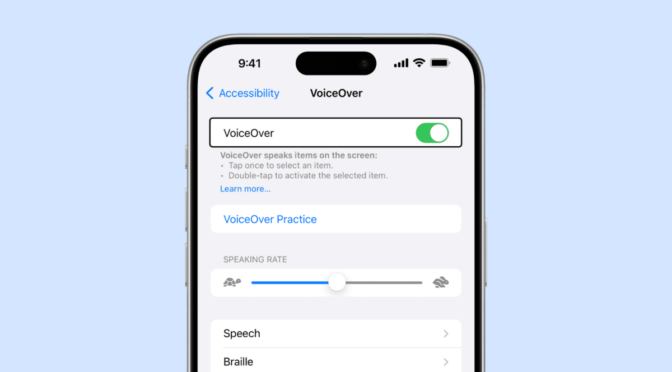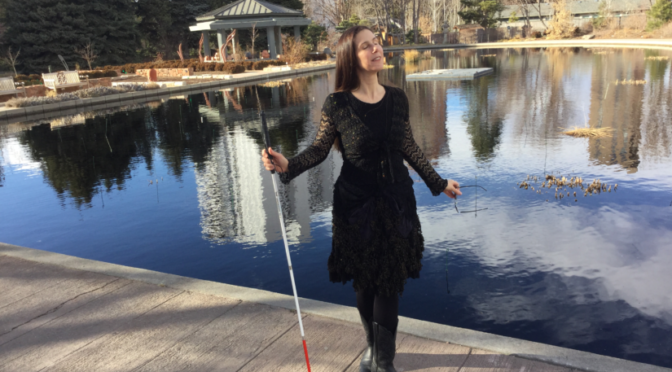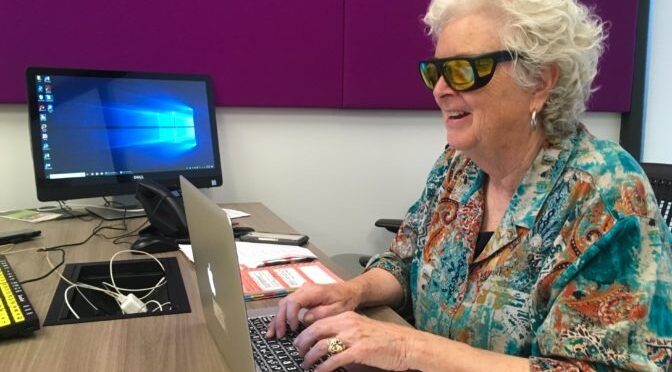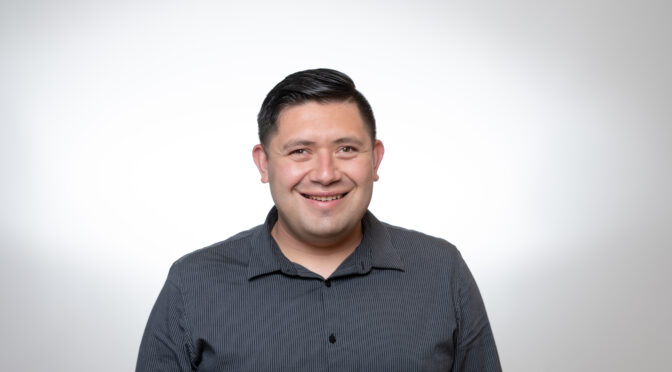At LightHouse, we always want our community members to know more about the dedicated staff who make up this organization. This time, we introduce you to Access Technology Specialist Fernando Macias.
Can you tell us your blindness story? When did you go blind and how did you end up getting training?
I was born in 1992 in Manzanillo, Colima, Mexico. No one knew I was blind at first, but then, as I started to crawl, my family started to figure out something was going on. My grandpa told me that he used to throw a marble towards me, and I would wait for it to stop bouncing off his concrete floor, crawl towards the location where it was, and fumble around for it. He noticed I was using my ears and turning them towards that last location I heard the marble instead of looking at where it went. At first my parents didn’t believe something was off, but things kept happening. As I started to walk, I would bump into tables and chairs, so that’s when my parents started to think something was up with my vision.
Going back a little bit, we lived in the country and did not have the best access to medical care. When my mom was pregnant with me, her water broke, but she did not go to the hospital right away. We got to the hospital hours after her water broke and the staff determined I had an infection, toxoplasmosis. This can cause vision loss if untreated. It’s a parasite that can be found in cat feces or soil, and we did have cats on the farm, so my mom could have caught it and passed it to me. I came down with a nasty fever that persisted for days. There was nothing the hospital could do, but I recovered and grew into a toddler. But after my grandpa had noticed something was wrong and then finally my parents, they made that connection to the fever and that’s when they took me to have my eyes checked.
The hospital staff couldn’t give my parents much information about my vision, but they were able to determine that I was very legally blind, but they didn’t have an acuity for me. They just knew that I couldn’t see as well as I should have.
We went home, but my parents never accepted the fact that I was blind. That happens, especially in rural Mexico, where the hope was that I was going to grow up and tend to the livestock. My parents had a lot of land, and so did my grandpa. They grew crops and had a lot of cattle, so the hope was that I was going to grow up and work that and continue the tradition, but now that was turned completely on its head.
Since my parents couldn’t accept that I couldn’t see, that manifested itself in, “He’s blind, we don’t care. We’re going to treat him like any other kid.” I did chores and my dad taught me how to ride a bicycle because we had open space. He would take me horseback riding and out to the field with him. In fact, I did not know that I was blind until I was told we were going to come to the United States.
We came to the United States so I could get an education. If you’re rich, you can get a private education in Mexico. If you’re not, you can get a public education, but public schools in Mexico are not set up to accommodate people with disabilities.
Now there was a school for the blind in Mexico in the city of Colima, which was about 90 minutes away by car from us. We’d drive there once a week, on a Saturday, and that was the best they could offer. I learned a little bit of braille, my vowels, but that was it.
My parents realized that wasn’t going to work out, so my dad decided that we would emigrate to the United States, because he had heard that there were better opportunities for me over here. One of my aunts was over here and she helped us settle in.
My parents took me to Stanford University to get my eyes checked and got a better idea of what I had. I was seven years old, and the staff figured out that my vision was around 20/4000 and were able to show my parents what the damage was. There are scars smack in the middle of my retinas that are pretty severe. They let in images to my optic nerves, but my central vision is very blurry and the most damaged. My peripheral vision is okay.
Then I was put in school, and I learned how to speak English and read Grade 1 braille by the age of 10. So that’s how I found out I was blind and ended up in the United States.
How did you get into technology and eventually become a tech trainer at LightHouse?
Technology’s been a part of who I am since I could use a computer. When I was 10, I learned how to use Windows XP with the screen reader JAWS. I also started using Google, which was a pretty new search engine at the time.
For middle school and part of high school, I went to the California School for the Blind (CSB). I was on the mainstream track and went to a public middle school for some classes before coming back to CSB in the evenings. I got a lot of technology training.
It was a liberating thing for me, being able to get on the Internet, being able to type, do email, and to do what other people were doing online. Jerry Kuns [former LightHouse board member and longtime LightHouse supporter] was a teacher at CSB at the time and one of my tech trainers. His late wife, Theresa Postello, was my VI trainer. They were my connection points to LightHouse.
I was new to the U.S., and I wasn’t connected to the blindness community at all. Outside of CSB, I didn’t know anyone else who was blind. Jerry and Theresa recommended Enchanted Hills Camp (EHC) to me. They said, “this could be beneficial to you. You’ll make friends. You’ll learn things, and you’ll be in a blind-friendly place.” I initially resisted the idea because I was shy, and I wasn’t very comfortable speaking English yet. But they insisted, and told my parents, and I was convinced, and so I went to EHC in 2003. During the rest of my time at CSB, there would be several student trips to LightHouse to get tours or go to the Adaptations Store.
After high school I went to college. After that, I got a volunteer gig at an immigration law firm. Eventually they hired me part time to be an interpreter and do some office work. I started going to immigration interviews with clients and using more of the technology skills I had acquired, like JAWS and using a braille display. In December 2019, I saw that there was an opening at LightHouse for an Access Technology Trainer, and I always wanted to do something with Access Technology training. I wanted to do what Jerry was doing.
I applied for the position but never heard back, so I continued with my work at the law firm. But it was part time work, and my parents were going back to Mexico, so I needed a fulltime job.
One day in March 2022, more than two years later, I got a call from a human resources person at LightHouse, but I didn’t recognize the number which had a 650 area code so I didn’t answer it. They left me a voicemail, and I then proceeded not to listen to my voicemail. I got another call a week later from this same number and I said, “You know what? I’ve got to answer this.” I don’t usually answer these types of calls, but I had a good feeling.
I answered and was shocked when I was told they were calling from LightHouse. They said, “I see that you submitted your resumé and applied for a position a while ago, and the Director of Access Technology, Jeffery Colon, is interested in interviewing you. I know it’s been a long time, but would you be interested?” So, I interviewed for the position and started the job in June 2022.
I started off doing a lot of iPhone training and a lot of the bilingual tech training, because we had a pretty long waitlist of Spanish speaking students. I’ve also been doing user testing of apps and websites for accessibility. I believe that’s a way I can contribute to making things more accessible for everyone.
Can you talk about your teaching philosophy when you’re training students?
Don’t be afraid to use technology. It’s there for you. It’s a tool, and it’s the way to access the world. All of our mainstream devices have some sort of access technology built into them. It’s important to become fluent in that. I also teach my students to advocate for themselves. If an app is broken, send an email to the developers. Communication is important. Blind and low vision people have a right to access what everyone else can.
Interested in Access Technology training at LightHouse? Get started by emailing info@old.lighthouse-sf.org or calling 415-431-1481.
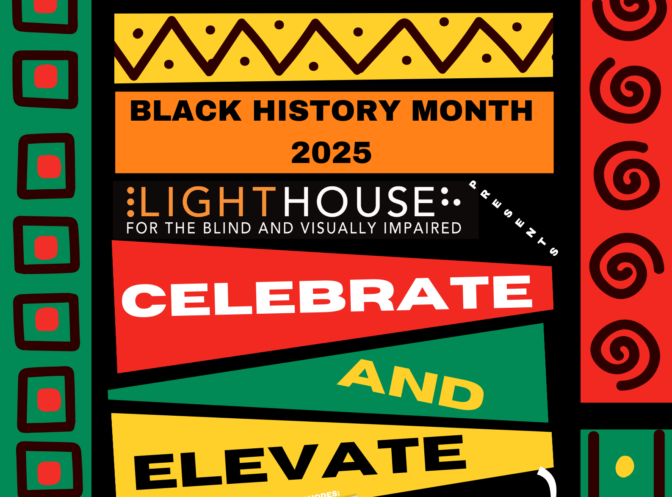
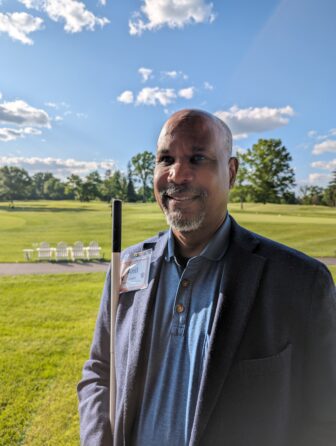
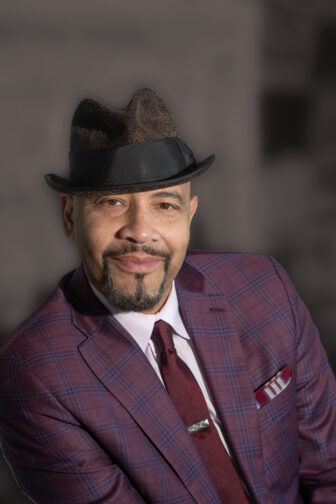
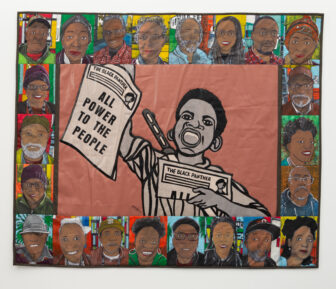

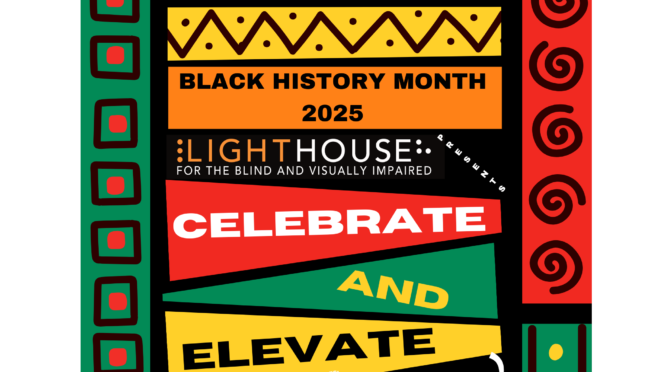

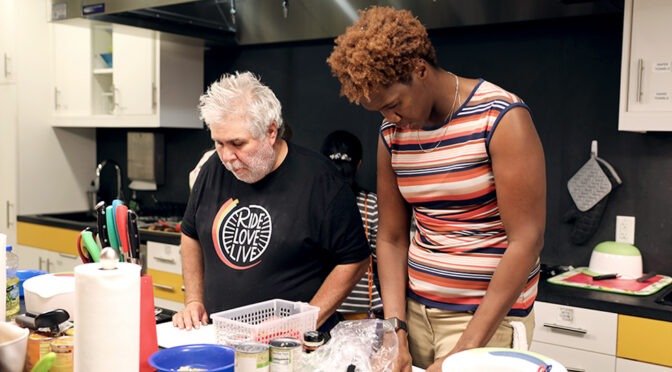
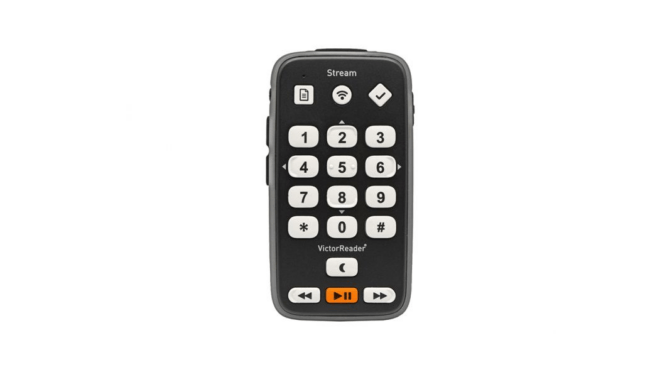
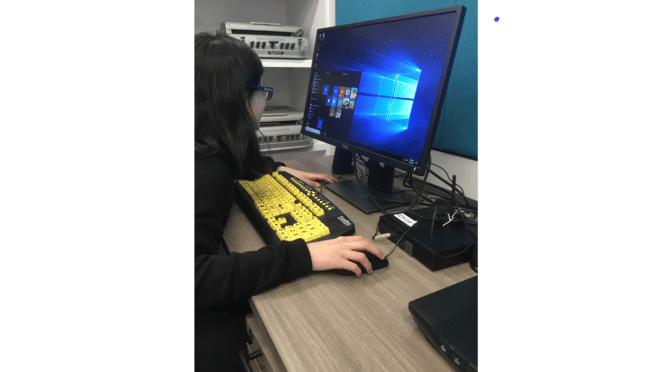
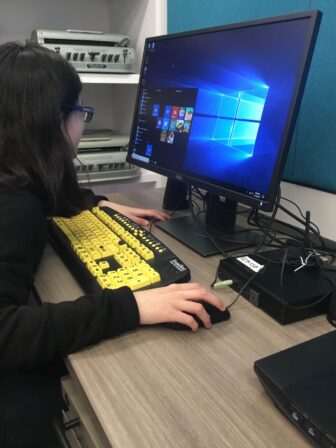 Class Description
Class Description